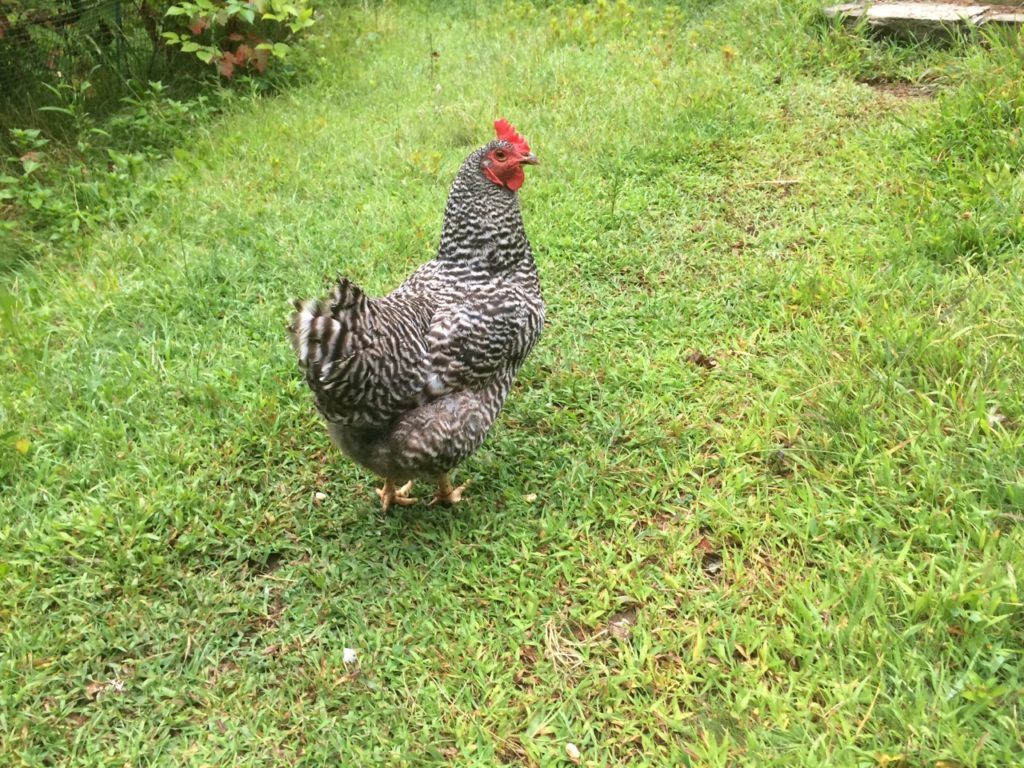
This year, our Broody hen did not abruptly turn off her motherhood instincts. She was showing some signs of being ready to transition but she seemed semi-stuck in mother mode. She needed help.
For a variety of reasons, we decided that we needed to help Broody transition out of motherhood and get back to being a laying hen in the flock. Her chicks, at five weeks old, were big enough to survive on their own. They are destined to join our pastor’s flock, not ours, so letting Broody integrate them into our flock was of no value.
Signs She Was Done
Mother hens usually exhibit some signs that they are done being a mama. One is that she will peck at her chicks to make them leave her alone. Broody never did this. She was still a careful and protective mother.
Another sign is that the hen will stop transferring treats to her chicks but will gobble them down herself. “Too bad for you, kids. T
An unmistakeable sign is that a hen is done being a mother is that she will resume laying eggs. We had not checked the nest box fastidiously. When we did (the day after the move), she had laid three eggs. Her biology was ready to be done with motherhood even if her instincts were not.
The symptom that pushed us into acting was her pacing back and forth along the fence in her enclosure, showing frustration at her confinement. She could hurt herself trying to get out on account of the hawk-proof netting over her yard. Earlier, as a doting mother, she showed no interest in getting out. She was only interested in being a stalwart guardian for her chicks. Now, however, she wanted to be done but could not quite give it up.
It was time to help Broody move on.
Night Operations
We waited until a Friday night to move Broody. I wanted to be on-hand the day after the move to monitor her behavior for any freaking-out. Clearly, Friday was three days after her body announced it was done (by laying eggs). After the night had grown sufficiently dark, I took Broody out of the nest box and put her on the roost bar of the big coop. She did not fuss much.
That same night, I moved the chicks (nest box and all) into the Half Coop. They would keep sleeping in their natal nest but would wake up somewhere else. The three incubator chicks were already living in the Half Coop.
Kicking Old Habits
Saturday, Broody showed no worries about her “missing” chicks. She quickly re-established her rank near the top of the pecking order and spent the day free-ranging with the rest of the flock. Only toward evening did motherhood habits appear. She paced back and forth, somewhat frantically, along the fence that defined her chick-rearing “yard.” Even though there was no nest box for her to return to, she had developed the habit (over two months) that the little fenced-in yard was where she should return to at dusk.
Obscuring her view of the yard helped her get over it. After that next night (Saturday night) in the coop, she seemed to be completely over her motherhood tendencies. No more pacing.
Chick Magnets?

Interestingly, when she eventually free-ranged down to the Half Coop’s run, she could see her chicks but showed no particular interest in them. There was no frantic squawking about getting to her babies. They were not magnets to her motherhood. If anything, a few of the other hens showed more interest in the chicks than she did — if only as newcomers they could boss around. Chickens can be like that.
Happy Ending
I was glad that Broody could be taken out of her motherhood habit without too much fuss. Her body was ready, she just had a hard time giving it up.
